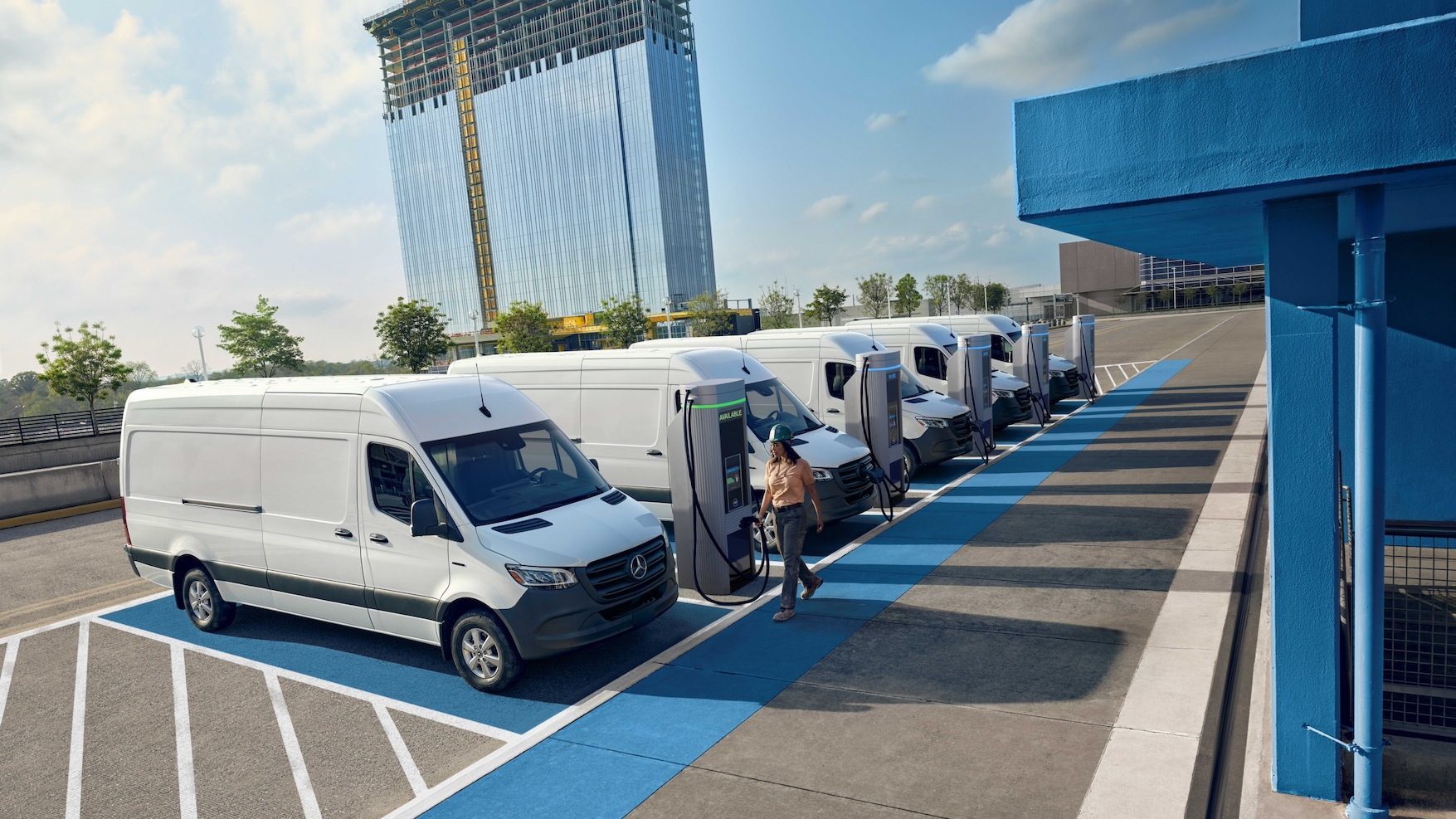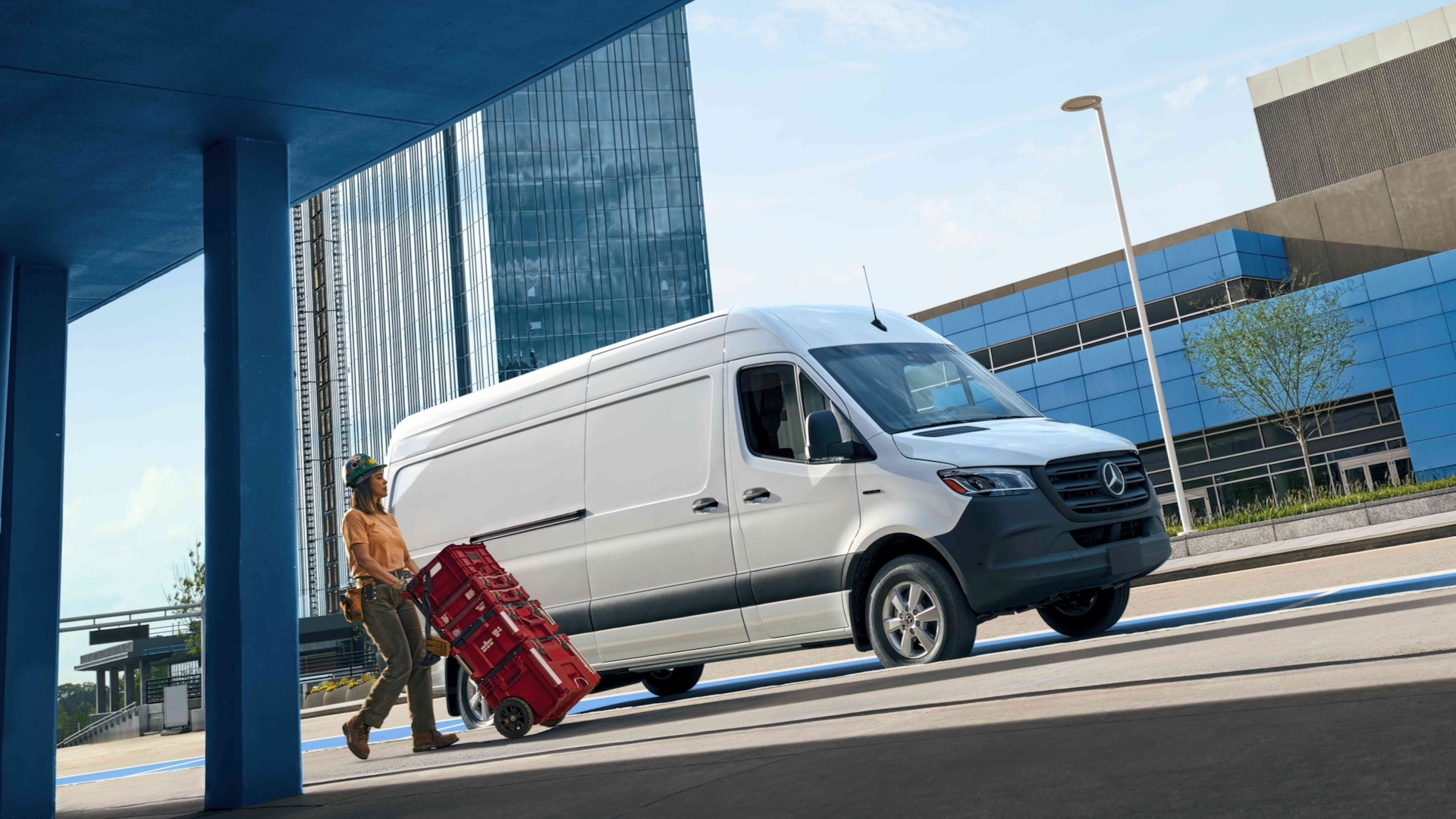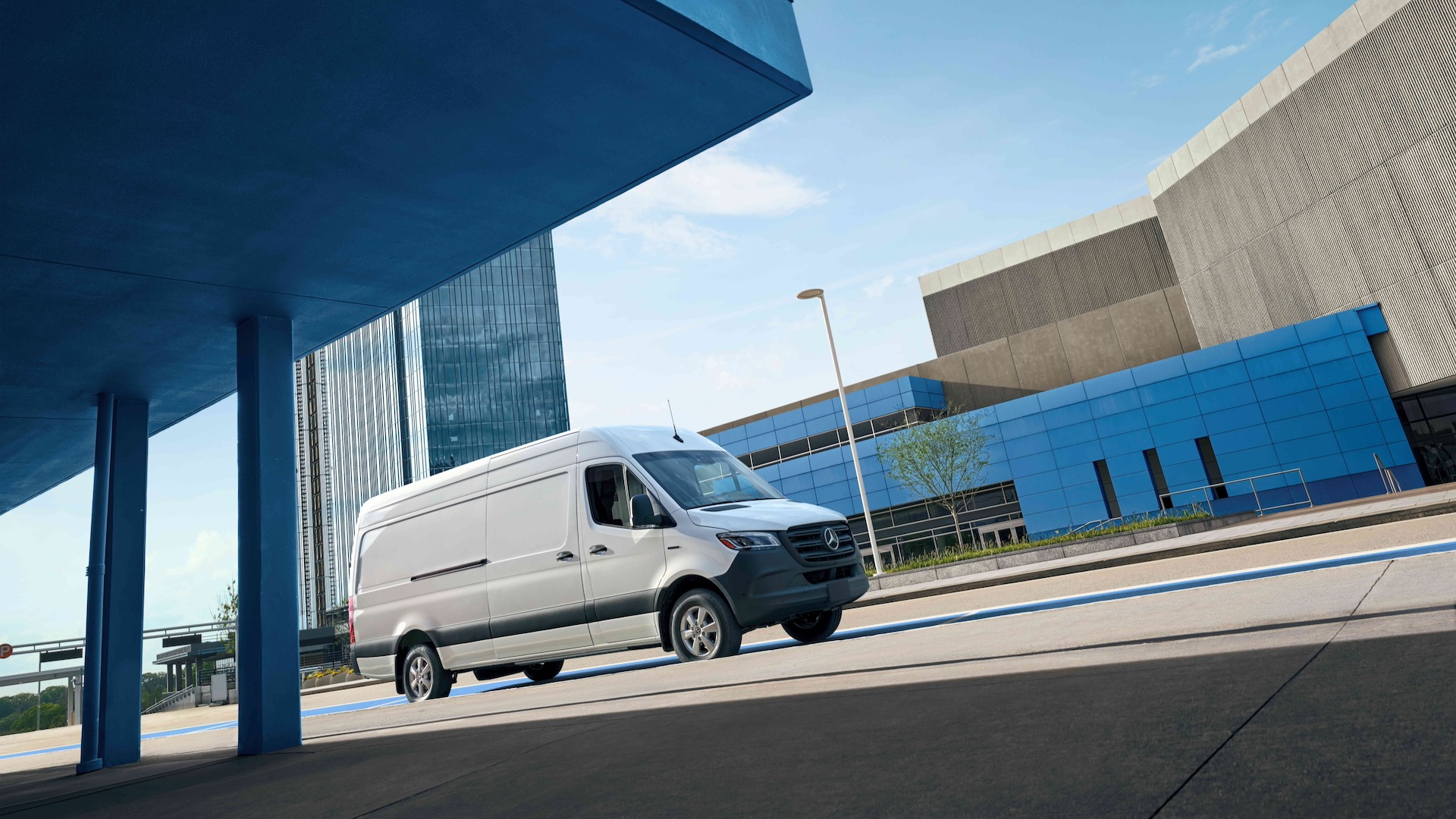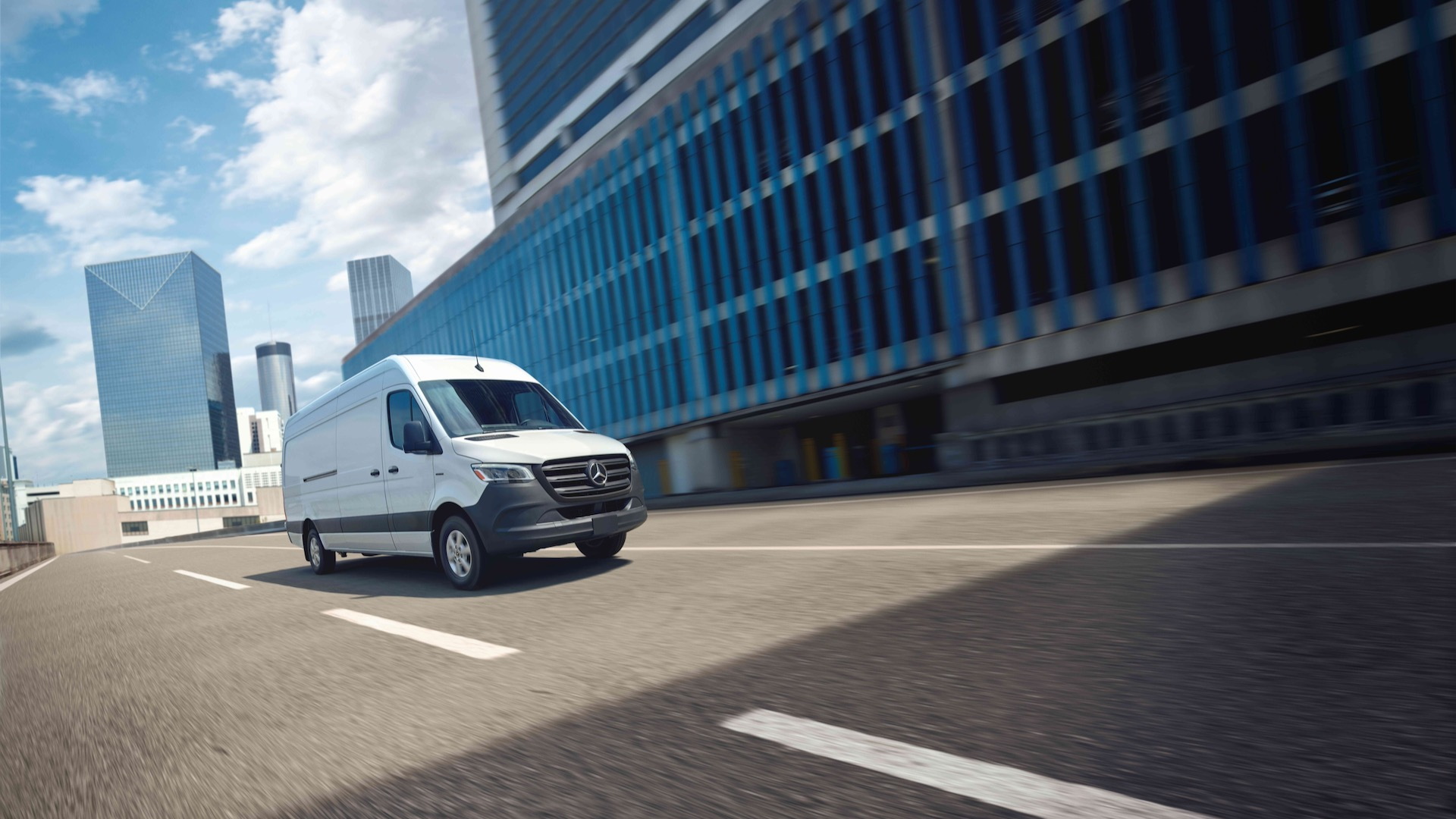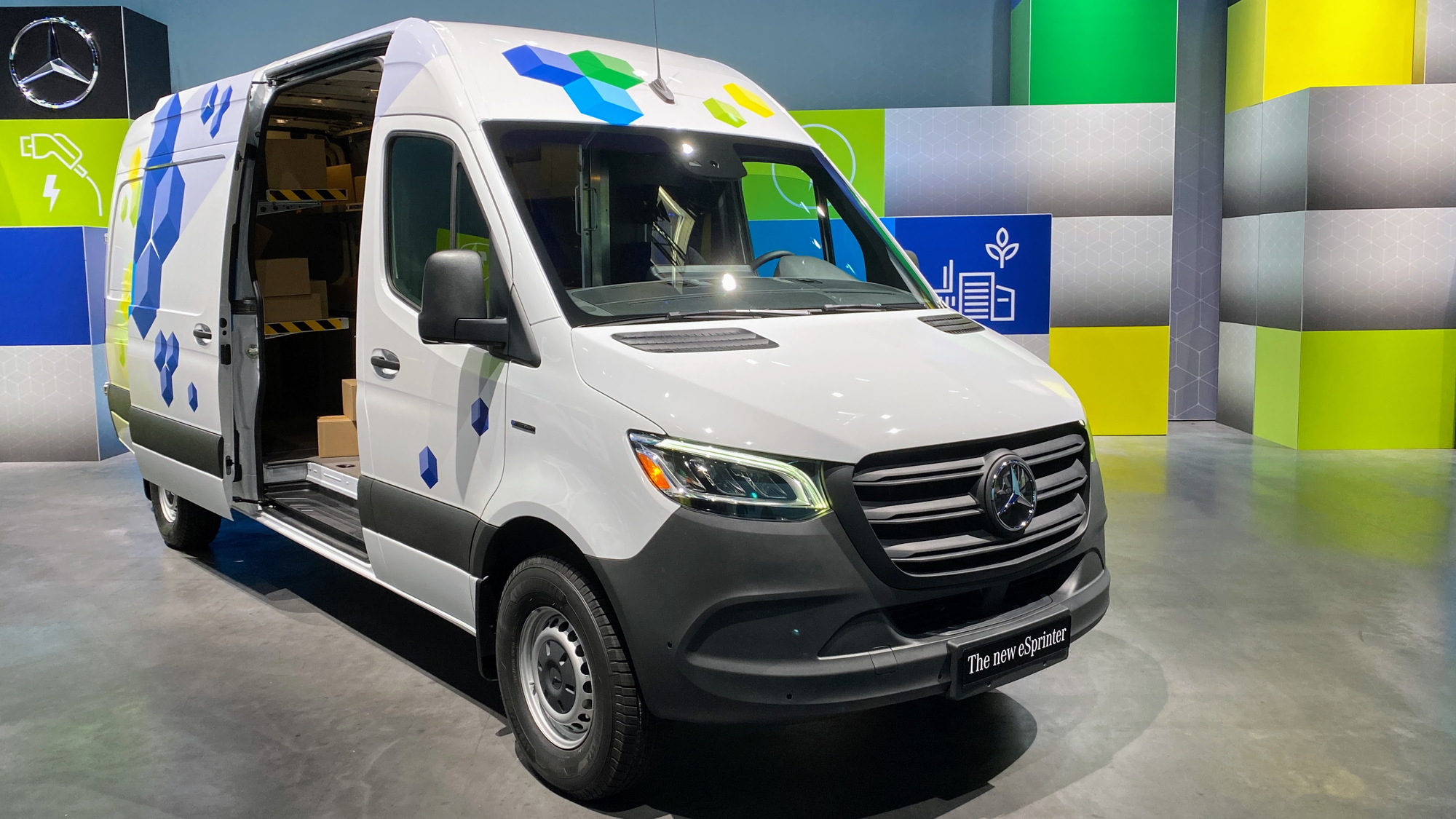The 2024 Mercedes-Benz eSprinter electric van is now available to order in the U.S. and comes with a starting price of $74,181, including a $2,295 destination charge.
That price is for the base Standard Output version. A High Output version starts at $77,611, including destination. Both have a single electric motor driving the rear wheels and generating 295 lb-ft of torque. However the Standard Output model is rated at 134 hp, while the High Output version is rated at 201 hp.
Mercedes will offer multiple configurations in other regions, but at launch the U.S. only gets a high-roof cargo van with a 170-inch wheelbase. This offers 488 cubic feet of cargo volume, with a 2,624-pound payload capacity and a permissible gross vehicle weight of 9,370 pounds.
Other regions will get multiple battery-pack sizes as well, but all U.S. versions get the same lithium iron phosphate (LFP) battery pack with 113 kwh of usable capacity. Mercedes didn't offer any EPA range estimates, but said the eSprinter can achieve 249 miles on the WLTP test cycle used overseas. The range estimate should be lower on the stricter EPA cycle. DC fast charging at up to 115 kw allows for a 10-80% charge in just over 40 minutes, Mercedes said.
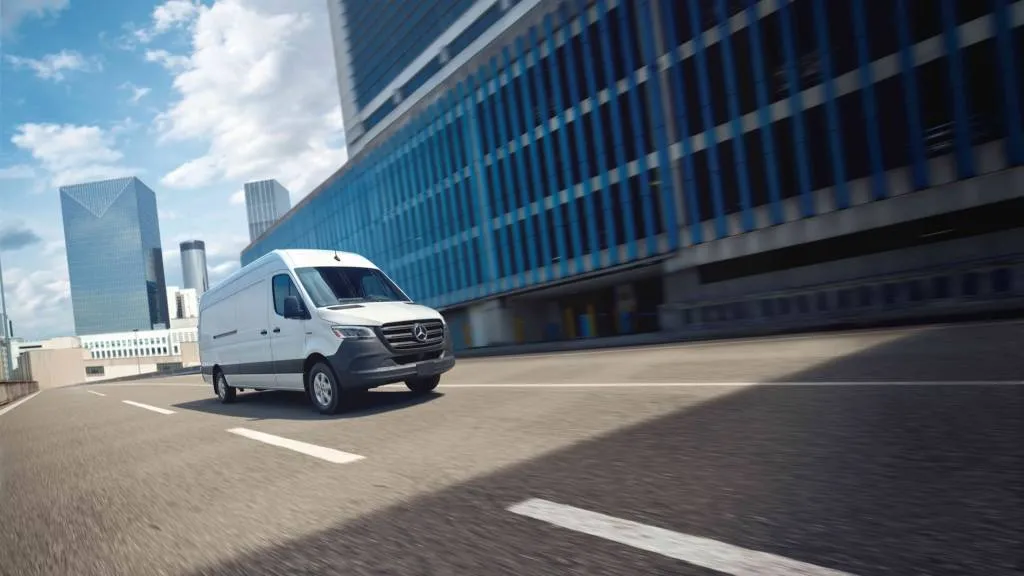
2024 Mercedes-Benz eSprinter
Helping maximize range are climate control pre-conditioning, which avoid drawing power from the battery when the van is plugged in, a Max Range drive mode (there are Eco and Comfort modes as well), and Eco Assist, which coaches the driver on when to use regenerative braking. An automatic regenerative braking function uses radar to adjust the level of regeneration based on traffic flow, and the eSprinter also gets a version of Mercedes' MBUX infotainment system used in the automaker's passenger line of vehicles.
Mercedes has sold the eSprinter in some markets since 2019, but the 2024 model will be the first available in the U.S. It will also be built at Mercedes' van factory near Charleston, South Carolina, where the current internal-combustion Sprinter is built. Local production, which is expected to start later this year, allows Mercedes to avoid the 25% tax on imported light trucks and other commercial vehicles.
By 2025, Mercedes aims for all of its light vans to be electric. Those future electric vans will be based on a new platform called Van.EA, and include a mid-size luxury van bound for the U.S. It's all part of Mercedes' plan to sell only EVs in key markets by 2030.
